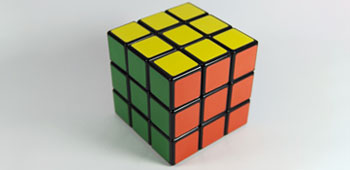
SHARING IS CARING
If our Website helped you a little, then kindly spread our voice using Social Networks. Spread our word to your readers, friends, teachers, students & all those close ones who deserve to know what you know now.
How to know or check if a number is a perfect cube?
We often need to know or check if a number is a perfect cube in order to extract the cube root of the number within a very short time, especially in the competitive examinations.


Before explaining the shortcut, it is very important that the performer knows the concept of digital root or digital sum.
Let us summarize the cubes of the numbers till 10 and obtain their digital roots.
|
Number |
Cube |
Digital Root of the cube |
|
1 |
1 |
1 |
|
2 |
8 |
8 |
|
3 |
27 |
9 (or 0) |
|
4 |
64 |
1 |
|
5 |
125 |
8 |
|
6 |
216 |
9 (or 0) |
|
7 |
343 |
1 |
|
8 |
512 |
8 |
|
9 |
729 |
9 (or 0) |
- If the number is divisible by 3, its cube has digital root 9;
- If it has a remainder of 1 when divided by 3, its cube has digital root 1;
- If it has a remainder of 2 when divided by 3, its cube has digital root 8.
Consider an example. Suppose we need to check which from the following is a perfect cube:
- 91348765
- 91733851
- 91449952
- 91944321
Now the digital root of 91733851 is 10 i.e., 1.
So, we are left with only one option 91733851 whose digital root is 1. So, we can conclude that 91733851 is a perfect cube.
Finally to reiterate, if the digital root of a number is not 0, 1 or 8, we can easily conclude that the number is not a perfect cube. However, if a number has a digital root of 1, 8 or 0, that does not mean, that the given number must be a perfect cube.







 Profile
Profile Signout
Signout














 Quiz
Quiz
 Get latest Exam Updates
Get latest Exam Updates 










